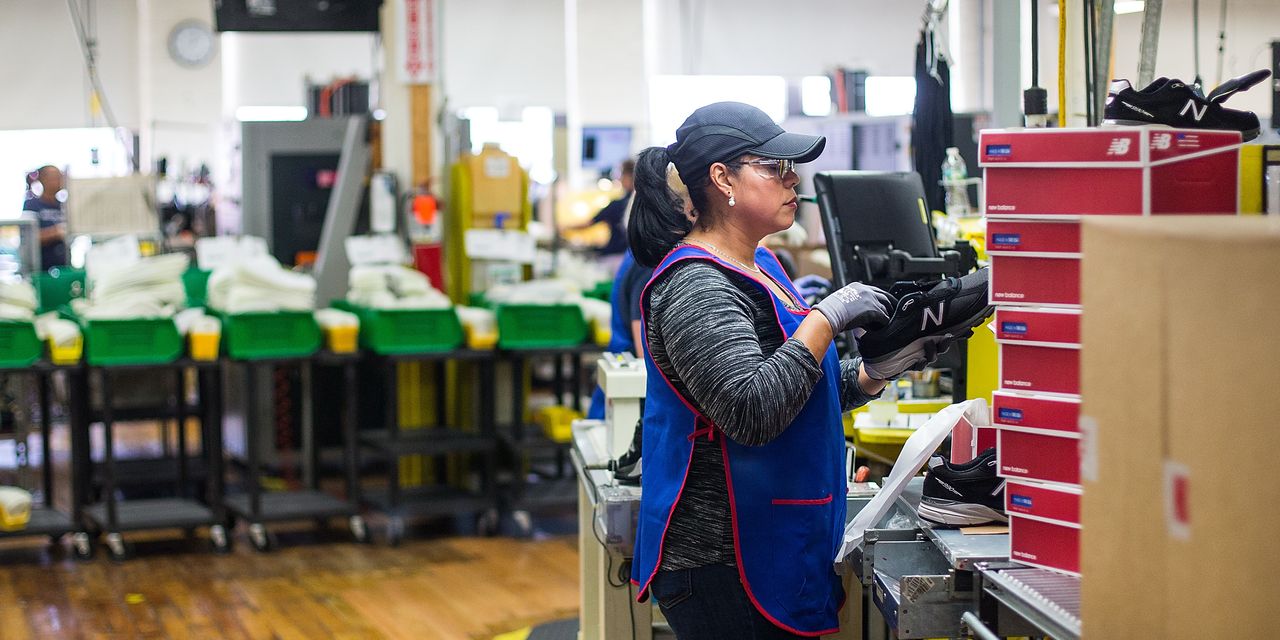
The pandemic has made many Americans reassess what they want out of their jobs, a new report suggests — and some are ready to pursue a completely new direction.
Nearly half of American workers are reconsidering the kind of job they want in the future, and some 53% even say they would retrain for a career in a different industry if they had the chance, according to the latest installment of Prudential’s PRU, +1.78% Pulse of the American Worker Survey, which was conducted by Morning Consult.
In fact, half of the 2,000 adult full-time workers surveyed in late May said the pandemic had given them more control in deciding their career’s direction, and nearly one in four said they planned to search for a new job after the pandemic ended.
The most common drivers fueling job hunters were compensation (50%), challenges with work-life balance (38%), lack of opportunities for growth (34%), being tired of working on the same things (24%) and lack of learning opportunities (23%).
“ ‘Close to half of workers see more value in soft skills like adaptability and problem solving than they do in subject-matter expertise.’ ”
As the economy recovers from the pandemic recession and businesses reopen, workers have newfound leverage — and government data shows a record number of Americans are quitting their jobs, potentially to pursue better or more lucrative positions or to reevaluate their career trajectory.
Meanwhile, 46% of workers in the Prudential survey said they’ll have to learn new skills within the next year to do their job, and the same share of people said the pandemic had changed what it takes to do their job. Another four in 10 said their long-term financial security will be at risk if they don’t pick up new skills or retrain.
Going forward, job stability will hinge on the skills workers bring to the table, and “employers will be willing to pay a premium” for workers with the right skills, Prudential vice chair Rob Falzon said in a statement.
“At the same time, corporate America will need to step up and invest in their talent by offering skills training and enhancing on-the-job learning opportunities, such as through apprenticeship and rotation programs,” Falzon added.
“ ‘It’s a scary place to be to need a job and not have the skills to get a good job.’ ”
Close to half of workers see more value in soft skills like adaptability and problem solving than they do in subject-matter expertise. As for tech skills, workers are most likely to think they’ll need to know basic computer applications, workplace messaging and collaboration platforms, and network and information security in the future.
Apart from themselves, employees are most likely to deem their employers and managers responsible for helping them build necessary skills, the survey found.
To be sure, critics say the U.S. hasn’t historically succeeded at helping economically displaced workers.
On the federal government side, the country spends only 0.11% of its GDP on programs designed to help workers find jobs, the Aspen Institute noted last year. That’s half of what it invested in 1985, and far less than investments by other wealthy nations like France, Germany and Canada, the nonprofit said.
U.S. Commerce Secretary Gina Raimondo, who in her former capacity as Rhode Island governor last year rolled out a $45 million workforce development program to get residents back to work, has touted President Biden’s American Jobs Plan for what she called “big investments in training our workforce.”
Biden is negotiating with congressional Republicans on the infrastructure package.
“The changes in the American economy, many of which have been massively accelerated by COVID, are very scary for millions of Americans,” Raimondo said during an April press briefing. “It’s a scary place to be to need a job and not have the skills to get a good job.”
She added that “in order to compete, we have to have investments in apprenticeships, community colleges, STEM education, job training.”
“My view is: If you have the guts, in the middle of your career, to go out and get some job training to retrain yourself to get a new job, then we need to be there for you to provide high-quality, demand-driven, affordable — if not free — job training,” she added.






